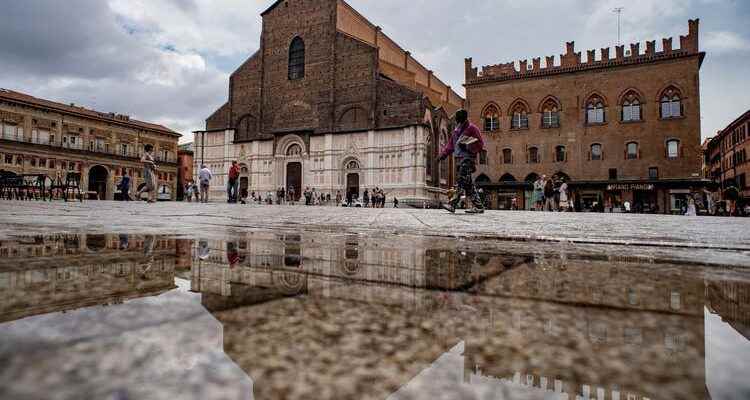For generations, the people of Emilia-Romagna, one of Italy’s most productive areas, have voted red. Now Giorgia Meloni has the edge here too. Above all, it should get the economy going again. Their rigid social policy is of less interest.
Center of the city, scene of events, demonstrations, ceremonies: Piazza Maggiore in Bologna.
“Keep your heart in shape” says the posters on the Piazza del Nettuno in the center of Bologna. At various stands, specialists from the local rescue and medical services will show the population effective measures to prevent heart attacks and explain how a defibrillator works.
But the long line of people here is for another event: the “Festival del Tortellino 2022”. At the Palazzo Re Enzo next door, twenty chefs will demonstrate twenty different ways of preparing tortellini: traditionally in chicken stock, a bit more creative with flavors of seafood or mushrooms, or “heretical”, as the locals call it, with cream. The people waiting are already getting into the swing of things and exchanging their own recipes.
First the food
In Bologna, the first thing to do is eat. That has always been the case and will probably remain so. The city does not bear the nickname for nothing “la grassa” the fats. Here, in the center of the Italian bacon belt, in Emilia-Romagna, blessed with gastronomic delights, everything that the area has to offer comes together: Mortadella, Parmesan, ham, sausage, Lambrusco and much more.
In the alleys around the Piazza Maggiore, people are already sitting together around noon, at tiny tables, eating, drinking and chatting. In the evenings, «Tagliatelle al ragù» is served in the countless taverns – a more sublime form of it, which comes along as spaghetti alla bolognese in canteens north of the Alps. It’s a mild autumn day, a public holiday, the patron saint of the city, San Petronio, is being honored, and the atmosphere is exuberant.
The crisis everyone is talking about in Italy seems far away here. However, if you take a closer look, you will definitely find them. You encounter it, for example, in the form of a small piece of paper at the entrance to the renowned coffee bar Terzi, near the university: “We can’t do it anymore,” they say, “we have to raise our prices.”
It costs one euro fifty coffee now. That may not sound like much by Swiss standards, but for the Italians, for whom going to the bar is part of their daily rituals, it’s a big leap. They usually pay one euro for it at the counter. “We hope for your understanding,” reads the notice.
fatigue as a factor
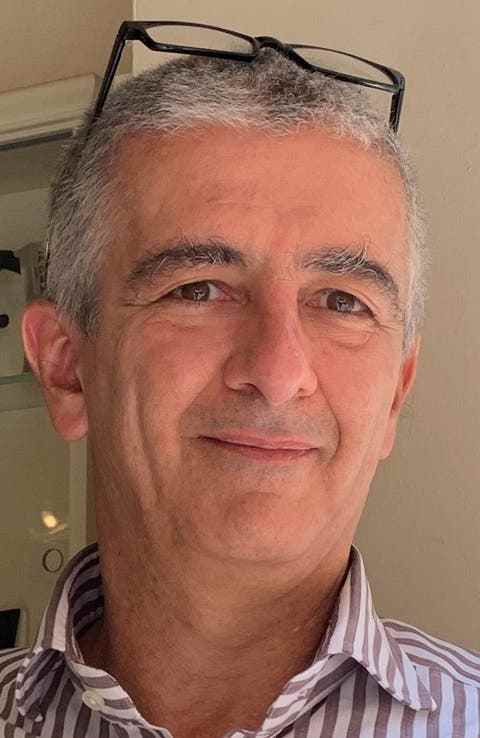
Manuel Terzi, who has been running the business with his wife for over twenty years, does everything himself, from the bean to the cup, “bean to cup”, as he describes his philosophy. He is an entrepreneurial man. “I’m for markets that are as free as possible,” he says. The fact that he has to obtain electricity from the state monopolist and has no choice bothers him. If energy prices are rising like they are right now, the only way for him to do so is by raising prices. He also likes to express his dissatisfaction in the media – Terzi also sees himself as a voice for the numerous shops and workshops in the city.
Traditionally, Bologna is a left-wing city. Is that why you also “La Rossa” called or because of the peculiar red-orange coloring of most house facades and tiled roofs, is an undecided issue among regular Bologna visitors. Terzi doesn’t want to badmouth the Red governments in the region and in the city. On the contrary: Stefano Bonaccini, President of the Emilia-Romagna region, likes him very much. Bonaccini is currently in high demand in Italy as a possible successor to Enrico Letta, who was defeated in the September 25 elections, as president of the social-democratic Partito Democratico (PD).
That the PD itself here, in its home countries, is against the legal alliance around Giorgia Meloni has lost, but does not particularly concern Terzi. No, Meloni is not a disaster. Tiredness drove the voters into the arms of the head of the Fratelli d’Italia. People are simply tired of the fact that their economic situation has constantly deteriorated in recent years. The leftists, who were always voted for primarily because their grandfathers and great-grandmothers had put their money in red, now simply have to foot the bill.
“Coherence has paid off”
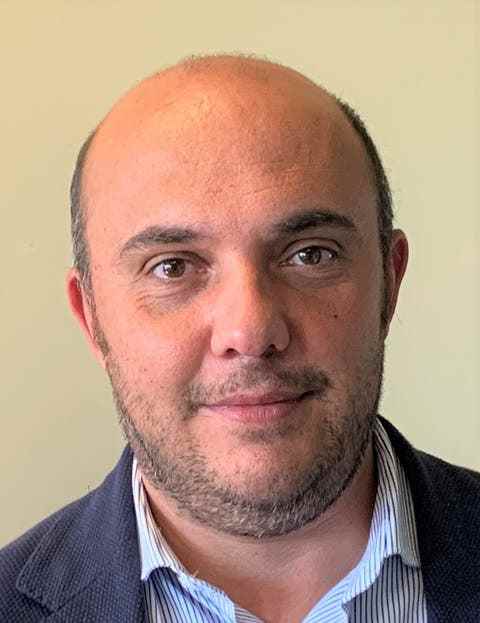
Change of scenery: in the office of the regional coordinator of Fratelli d’Italia outside in the modern parliament building, the walls are papered with pictures of party leader Giorgia Meloni and large maps of Emilia-Romagna. Michele Barcaiuolo looks a bit worn out and has a three-day beard. Are you tired here too? Yes, but it’s a different tiredness, it’s that of the satisfied winner who, after a huge effort, has finally crossed the finish line as a winner.
Barcaiuolo, 45 years old from Modena, a lawyer by profession, is one of the secret stars of the last election. Having just been elected as a senator to Rome himself, he has accomplished a double feat that hardly anyone here would have thought possible until recently: he overtook the left within the framework of the right-wing alliance, and with the Fratelli d’Italia he has his alliance partners Lega and Forza Italia relegated to their places.
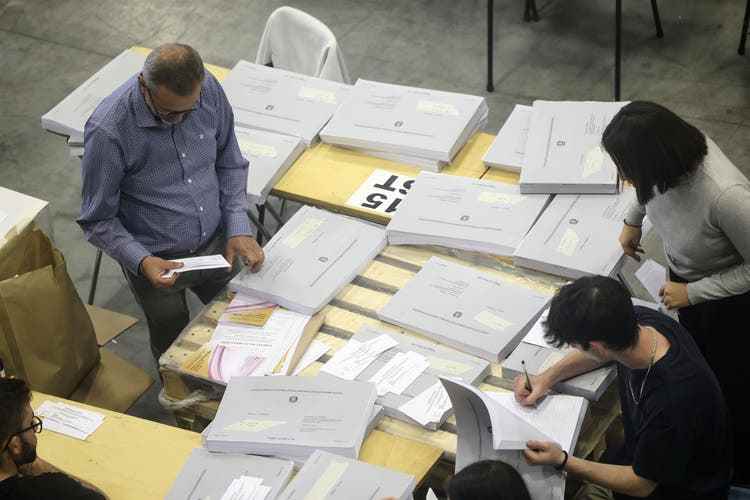
Counting in Emilia-Romagna: In national elections on September 25, the right-wing alliance overtook the left-wing camp. The Fratelli d’Italia question the traditional supremacy of the Partito Democratico.
“You see,” he says, pointing to the maps, “everywhere in the country, both on the plains and on the hills, and even in important cities like Piacenza or Ferrara, the right has won.” The PD now only dominates on the Reggio Emilia-Modena-Bologna axis, and here only in the historic city centers.
Despite the great success, Barcaiuolo remains on the ground. “Citizens are freer in national elections, local anchoring counts less,” he says. That certainly helped his party – as did the fact that even in the Draghi era, they opted for what he says was a “consistent but loyal opposition role”. “This consistency has paid off.” The Fratelli would now have to establish themselves quickly in the region. A competent management team needs to be formed. There is a need to catch up here, the left is even better positioned in this regard. “Our people have to be able to read balance sheets and be familiar with urban planning.” The training of the party cadres is now of great importance.
The party of the «produttivisti»
And the incorrigible and the nostalgic, those who always attract attention because they stretch out their right arm in the notorious “Roman salute” at relevant events, the sign of solidarity with the fascist legacy? “Here in the party, they no longer exist,” says the neo-senator with determination. When such incidents occur, they happen outside of the organization. The Fratelli d’Italia had cut ties with fascism long ago.
It is striking that there is currently little talk of this in Italy. Has Meloni’s party managed to credibly communicate the distance from their roots? Or is it simply embarrassing for people to be constantly reminded of this topic and that Italy has dealt with its past rather carelessly? It remains difficult to judge and it seems Italy have somehow agreed to give Giorgia Meloni a try first.
Meanwhile, one is preoccupied with the present and the problems facing Italians in the here and now: inflation, the looming recession, the uncertain world situation. Barcaiuolo himself says a word that explains a lot: “We are them productive.» It’s a difficult expression to translate, but it basically says that the Fratelli d’Italia side with those who ensure that something worthwhile can be produced in the companies, that work is rewarded and jobs are created . It’s not the world of big corporations and financial institutions – that was Mario Draghi’s world, people say here. Rather, it is about the small and medium-sized companies, of which there are very many in Emilia-Romagna. Barcaiuolo and his people aimed at them during the election campaign, and they were successful. Your language seems to have arrived in this busy region.
It’s not Matteo Salvini’s slogans or Silvio Berlusconi’s promises, and it’s not Giorgia Meloni’s restrictive socio-political positions on abortion and the like that won voters over. If the head of the Fratelli d’Italia, as the future head of government, were to focus on these issues, the wind could quickly turn again.
Change has been in the offing for a long time
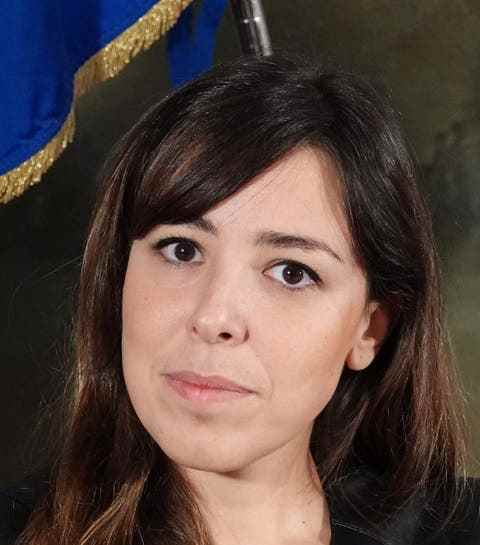
The economic malaise, on the other hand, runs deep. Outside the city center, in a faceless office building in the industrial district of Bologna, we meet Agnese Pini, editor-in-chief of a large media association in Emilia-Romagna, Tuscany and Lombardy. Countless header sheets and websites are part of their empire. flagship is “Il Resto del Carlino”, one of the oldest Italian newspapers and the liberal voice of the region. Agnese Pini (37) is the only woman at the head of an Italian daily newspaper.
She says: “The political change in our region has been announced for a long time.” The situation has gotten worse since the 2008 financial crisis. For a while, people voted left out of sheer habit, but the “red uniform color” faded at the latest with the 2018 elections. At that time, many communities would have already voted for a majority on the right or for the protest parties Lega and Cinque Stelle – parallel to the slow economic decline.
“You shouldn’t let yourself be dazzled by life in the historic city centers,” says Pini, “out in the country, the situation has steadily deteriorated in recent years.” The left, on the other hand, did too little and made a name for itself in the last election campaign by not being the Meloni party.
Fewer shops, fewer jobs, neglected infrastructure, deterioration in public services: the blooming landscapes of central and northern Italy have become noticeably poorer. “For the first time since the war, parents here have the feeling that their children will be worse off than they are,” they say. It is the most important reason for the victory of the right in the former left regions.
Back in the city center, over 80,000 students are enrolled at the University of Bologna, which is said to be the oldest university in the world. The city is considered an educational center, which is why it is also called «la dotta», the scholar. It has produced many clever minds, in our time, for example, the polymath Umberto Eco or Romano Prodilater Prime Minister and President of the European Commission.
The Partito Democratico (PD), it seems, hasn’t given up on the city yet. Here, where the PD has just suffered one of its most painful defeats, it also believes that the best talents will lead it into the future. The most promising contenders to succeed Enrico Letta at the party leadership include not only the aforementioned regional president Stefano Bonaccini, but also his deputy, the young activist Elly Schlein. The hopes of many Italian leftists rest on them both. It is possible that they are counting on the spirit of St. Petronius. According to legend, the city’s patron saint received important privileges and guarantees of protection for his city from the Roman emperors, which still have an effect today.
